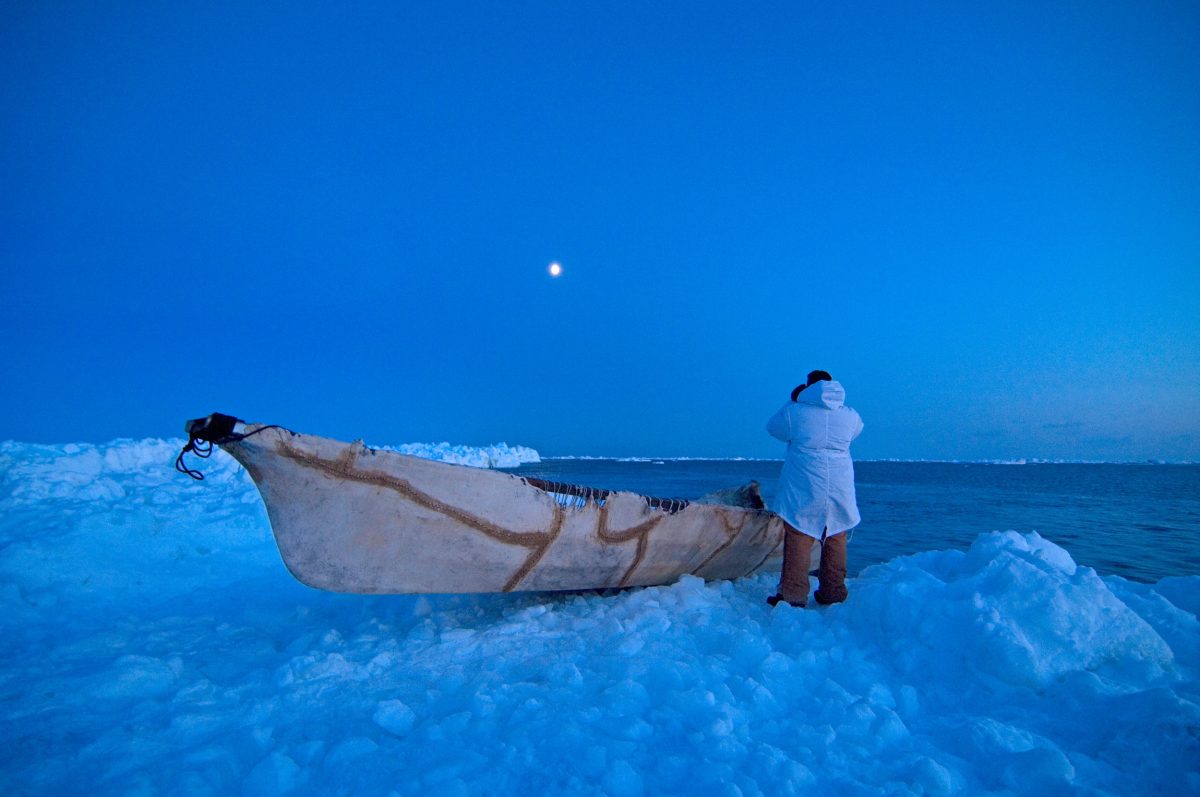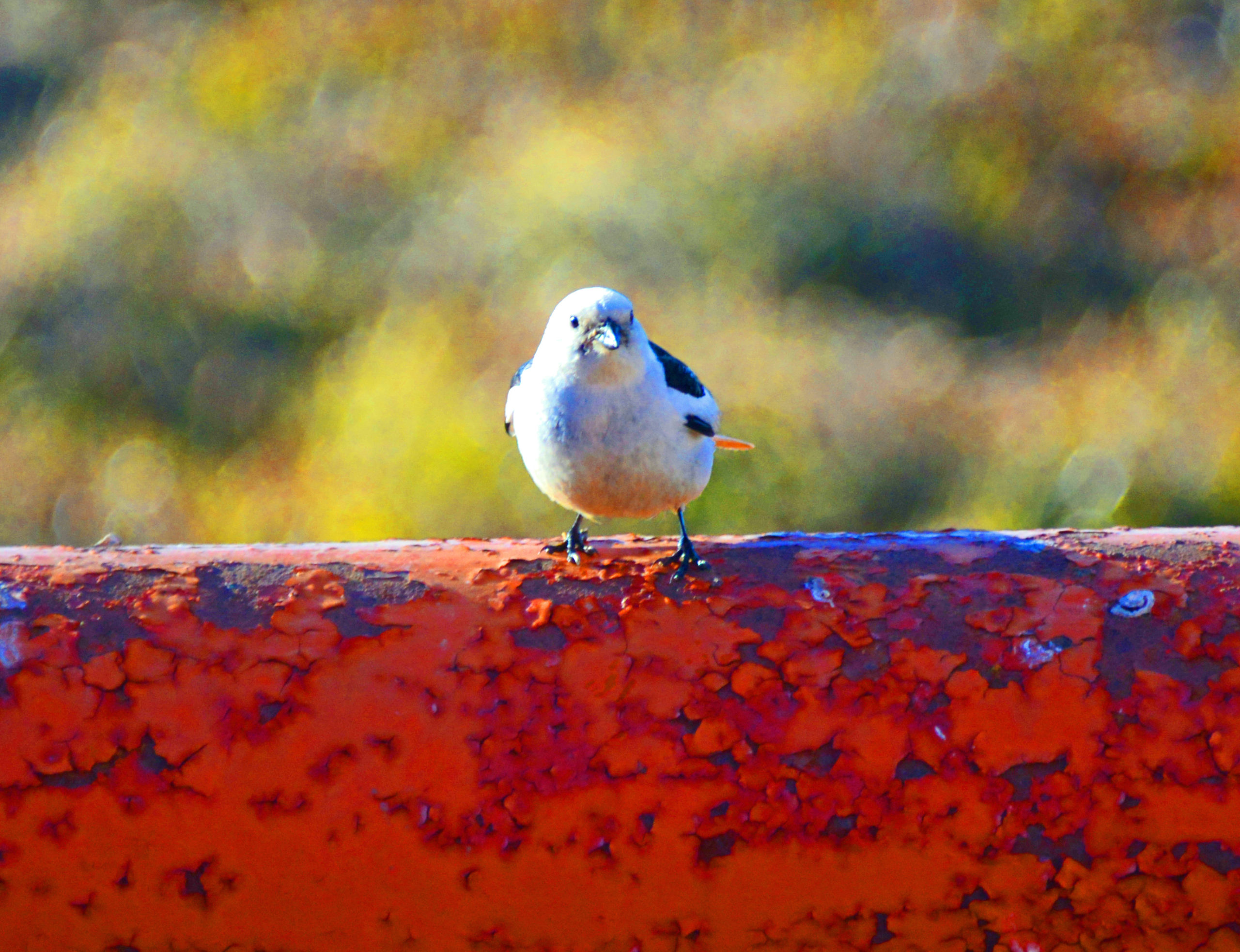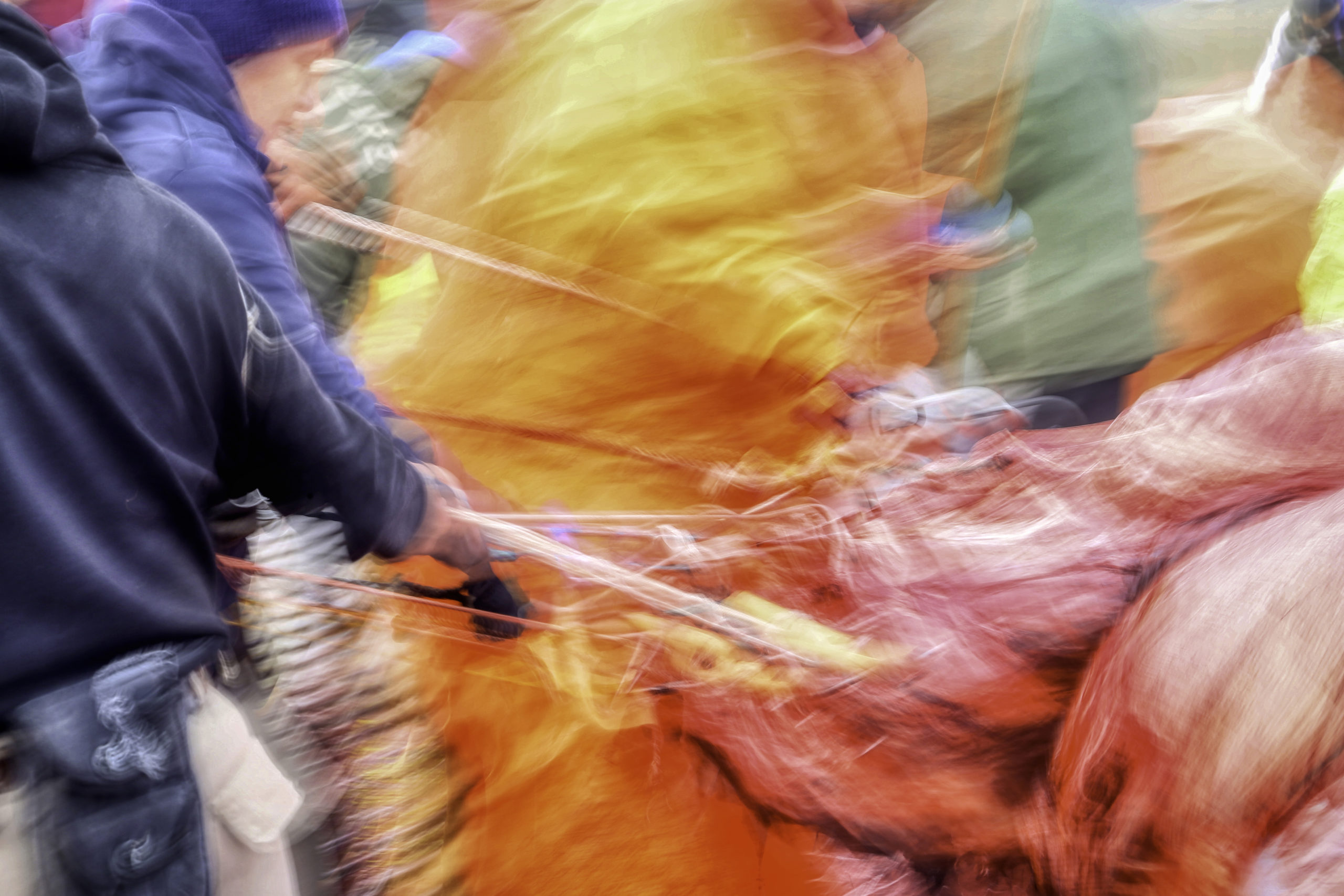Having grown up in a home of relatively peaceful domestic bliss, I never understood the menace of a raised hand aimed at breaking your spirit and crushing your soul. But here I was, sitting around a galley table in the middle of the Bering Sea, tense, as the captain raised his hand off the table. I leaned forward to take the six points I had so carefully counted, “fifteen two, fifteen four, and a pair is six.” I left my finger on the peg for a heartbeat more before I let it drop. “MUGGINS!” he hollered jubilantly as his hand smacked the table with full force. I let out a groan. “Ohhhhh, what did I miss?” “You forgot to take the points for the right jack,” he replied gleefully, moving his peg forward as I grimaced at him.
It was my first time working in the Aleutian Islands as a scientist on commercial fishing vessels. After boarding my assigned boat, I tossed my sea bag into my bunk, met the crew and, apparently, got down to business. The captain, Howard, must have seen my eyes flick across the galley and land on the familiar sight of a cribbage board because almost immediately he asked if I had ever played. When I answered in the affirmative, though mentioning that it had been a while, the whole crew grinned and said that I’d fit right in. And I had been truthful, my grandpa played cribbage, my dad played cribbage, my sister and I even played the odd game of cribbage, especially to divert ourselves during summer camping trips. Though not a typical summertime occupation for your average nine-year old girl, it’s turned out to be much more useful than my Easy-Bake oven could ever hope to be.
While teaching us the rules of the game, my dad told us that our grandpa had played “muggins”, meaning if you didn’t count up all of your points correctly, he would count the ones you missed and take them for himself. My sister and I were astounded at the thought of our grandfather being so cruel! Luckily for us, dad never played by those rules. He probably knew that if he tried, he’d soon be playing solitaire instead of cribbage.
Here on the boat, however, the crew knew that they had a captive audience. You could try to quit playing cribbage, but the other options were to peruse the candy shelf or clean something, so everyone knew you’d soon be back to try your hand once again.
I hadn’t played cribbage for almost 10 years when the summer fishing season began, so the crew built me up slowly. Pushing aside hazy memories of burnt Easy-Bake cupcakes, I recalled that in every round the players would be dealt a hand of cards, and they would use those cards to move their pegs forward on the board. The first player to 120 points won. I remembered that making 15’s and 31’s earned you peg points and that how you threw cards into the “crib” could make or break a game, but I definitely needed a refresher on the other rules. For a couple days, the crew would help me count any points that I missed and show me my mistakes, but don’t let this trick you into thinking they were charitable souls. I was sitting among cutthroat pirates, though I didn’t know it yet. A few days later they wouldn’t help me count my points, but they wouldn’t take them from me either. Finally, a few trips into the season, Howard thought that this cribbage fledgling was ready to fly. I was shoved from the nest by a size 13 Xtratuf boot and deemed “muggable”: any points that I missed could and would be taken from me with delight.
I played, and I was mugged, again and again. This time for two points, this time for four. Miss a fifteen . . . mugged. Forget to count the right jack . . . mugged. Didn’t notice that you had a run because you were too busy trying not to miss all the fifteens . . . MUGGED! It went on and on, each time the heat would rise to my face, I’d clench my teeth and purse my lips. “Oho,” they’d say. “She doesn’t like that,” they’d say. “Watch out for that death glare,” they’d say. As a scientist, making errors in counting to three and being called out on those errors in front of a crowd of fishermen is a mortifying experience. The salt and the wind weren’t the only things thickening my skin those days.
Not every muggins was a dramatic affair; sometimes my opponent would lean forward to look at my cards and mockingly say, “Now, I’m going to have to mug you on that.” I would lean forward as well to search for what I had missed; when I found it my eyes would flick up to the sympathetic (secretly triumphant) face across the table from me and with a huff I would toss my cards at the offending party.
The most infuriating maneuver was a little thing the crew called “the lie and grab.” To execute this play, one must have both a face and a heart of stone because only a true pirate would be able to commit such an act of deception. I would count my points with trepidation, whereupon my opponent would affirm my count with a nod and a “yup” and scoop the cards up while I moved my peg forward. The moment, nay, the nanosecond my finger was off my peg they’d shout “MUGGINS” and pull the cards off the top of the deck to prove my error. The first time this happened to me I believe my dinner plate went flying; I think it’s best to blame the airborne object on heavy seas and not on my bad temper.
Then one day something magical happened; Howard shouted “MUGGINS!” which immediately caused me to run through my cards again. “Where?” I demanded. He looked at my cards and then said, “Oh, never mind.” Never mind . . . never mind! I had been falsely mugged, falsely accused, sent out to walk the plank only to be beckoned back to safety with a wave of a hand. I had counted my points correctly and now the whole world, or at least everyone at the galley table, could see it. Success bolstered my spirits.
Soon I got to the point where I was no longer only keeping my head above water but I was watching my opponents to make sure that they counted all their points too. Muggins worked both ways after all. The crew started to notice and would joke about it. “She’s doing a little dumpster diving, trying to find some points there,” they’d chuckle as I glanced through their cards on the table, mostly unsuccessfully. These guys had been playing cribbage for longer than I had been alive.
One day I was looking at my ranking in the official cribbage scoreboard, scrupulously transcribed in a yellow notebook with curled edges and smeared with grease, when Johnny, the engineer, shuffled the cards and nodded at the board. “Ready for a game?” “Is that even a question?” I joked. Adding just the slightest amount of immense pressure, Howard came downstairs to watch the proceedings. Johnny played a card to make the count 31 and I rolled my eyes as he took his points. But wait! He had only taken two points and the run in the cards meant that it should have been “31 for five.” My eyes grew wide and my heart started thumping, I didn’t dare double-check myself or he would notice both my wild eyes and his error. “Muggins” I said incredulously. He looked, startled, at the cards on the table. After a quick perusal he chortled “Yep,” then he grinned at me. “Was that your first time mugging?” he asked while I moved my own peg forward. “Yeah!” I answered jubilantly with a grin that I had no chance of suppressing. Howard gave me a high five. “Nice one!” he exclaimed. I didn’t even care if I won the game anymore; the rush of success was intoxicating.
Later that evening I was sitting in the gear room reflecting on my cribbage exploits and enjoying a brisk, salty breeze when the captain called down and said we’d be hauling the net up in 15 minutes. The crew jostled through the gear room zipping up jackets and fastening knife belts before tumbling out onto the deck. The famed Alaska midnight sun was streaming in through the hatch and I watched as the crew traipsed out, each one silhouetted for a moment in the sunbeam before they stepped out onto the deck and beyond my vision. As I stood up to get to work, I paused for a moment in the doorway, fastened my own knife belt and grinned at the pirate I was becoming, before I stepped into the sun.




